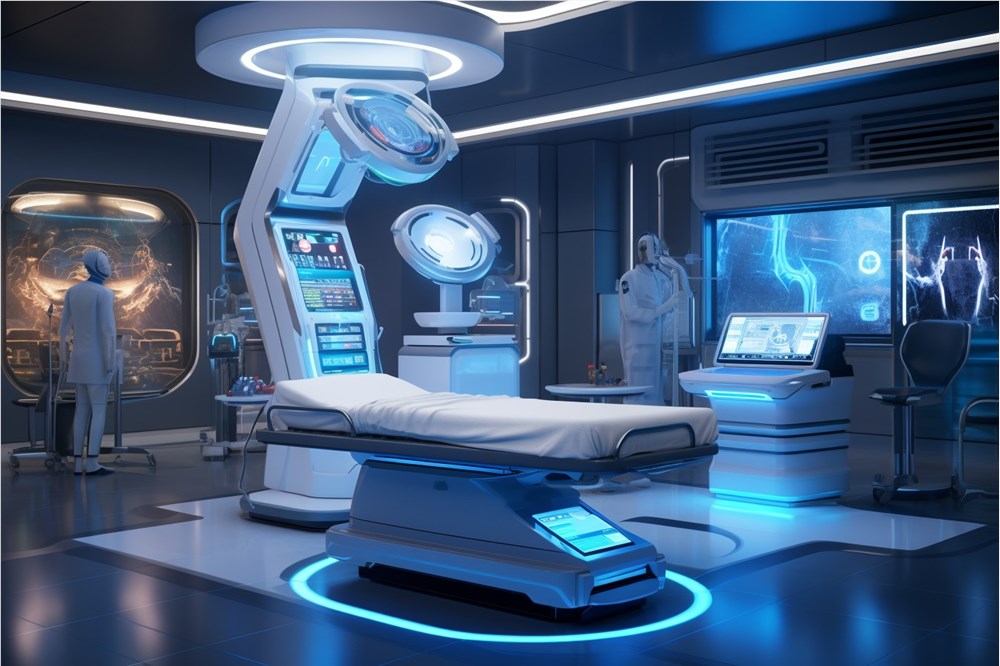A research team from the Faculty of Medicine at the University of Cologne and the University Hospital of Cologne has developed a digital pathology platform based on artificial intelligence, which has revolutionized the diagnosis of lung cancer. The platform can fully automatically analyze tissue sections of lung cancer patients, significantly improve the speed and accuracy of diagnosis, and provide a more reliable basis for the formulation of personalized treatment plans. This breakthrough technology not only simplifies the traditional pathology examination process, but also provides pathologists with more powerful analysis tools, thereby improving diagnostic efficiency and accuracy, ultimately benefiting more lung cancer patients.
Recently, a research team from the Faculty of Medicine at the University of Cologne and the University Hospital of Cologne launched a digital pathology platform based on artificial intelligence, led by Dr. Yuri Tolkach and Professor Reinhard Bittner. This new technology can perform fully automated analysis of tissue sections from lung cancer patients, improving the speed and accuracy of tumor detection.

Lung cancer is one of the most common cancers in humans, and its high mortality rate makes many patients deeply anxious. Nowadays, treatment options for lung cancer patients mainly rely on pathological examination. Not only are pathologists able to identify genetic changes associated with specific molecules to provide patients with personalized treatment plans, but in recent years, the digital transformation of pathology has also been advancing, significantly changing the traditional pathological examination methods.
In the past, pathologists needed to use a microscope to observe tissue sections, but now they can digitize the sections and analyze them directly on a computer screen. This digital approach not only improves efficiency, but also lays the foundation for the use of advanced artificial intelligence analysis methods. Through artificial intelligence, researchers can extract more cancer-related information from pathology slides, which is impossible to achieve with traditional methods.
"Our platform can be used to develop new clinical tools that not only improve the quality of diagnostics but also provide new information about a patient's condition, such as how they respond to treatment," said Dr. Tolkach. To validate the platform In view of its wide applicability, the research team plans to cooperate with five pathology research institutions in Germany, Austria and Japan to conduct further validation studies.
This research result has been published in the journal Cell Reporting Medicine, marking another important progress in the combination of digital pathology and artificial intelligence. Through this technology, lung cancer diagnosis will be more accurate in the future, and it will also give doctors and patients a deeper understanding of the disease.
Research paper: https://dx.doi.org/10.1016/j.xcrm.2024.101697
Highlight:
1. A research team from the University of Cologne launched a digital pathology platform based on artificial intelligence to realize fully automated analysis of lung cancer tissue sections.
2. ?Digital pathology improves the speed and accuracy of lung cancer diagnosis, and pathologists can extract more information from slices.
3. ? The research team plans to cooperate with international institutions for verification and promote the widespread popularization of artificial intelligence in clinical applications.
This digital pathology platform based on artificial intelligence has brought new hope to the diagnosis of lung cancer. Its future clinical application is worth looking forward to. It is expected to significantly improve the diagnosis and treatment experience of lung cancer patients and enhance the treatment effect. The international collaboration of the research team also indicates that this technology will benefit more patients around the world.